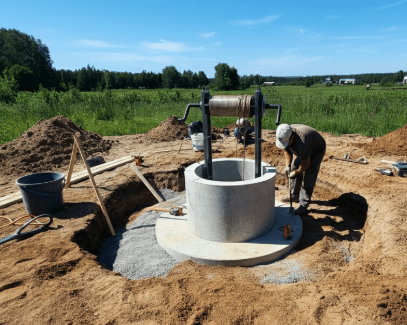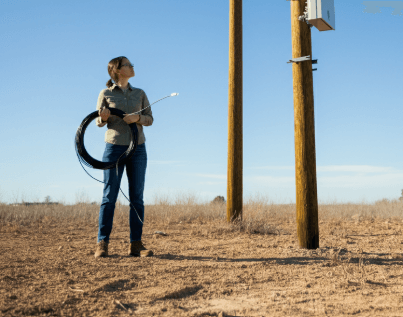When purchasing land in Lady Lake, Florida, knowing if utilities are available is a crucial step. This charming area, home to nearly 16,000 residents, offers growing opportunities for real estate investment, but utility access can significantly impact a property’s value and development potential. To check for utilities on land in Lady Lake, Florida, you’ll need to investigate connections for water, electricity, sewage, or gas, tasks that may seem complicated without the right guidance. Renowned real estate investors Steve Daria and Joleigh, who specialize in buying land and properties for cash, often emphasize how the availability of utilities can influence land transactions. Whether you’re buying or selling, understanding this factor can help ensure that your decisions are smooth and informed. Remember, failure to verify utilities can lead to unexpected costs, such as installing a septic system or accessing private water sources. By taking the time to check for utilities on land in Lady Lake, Florida, you can avoid these pitfalls and make confident choices. Interested in learning more about navigating land deals? Book a free discussion with Steve Daria and Joleigh today to get expert advice tailored to your needs!
Key Points
- Contact Local Utility Providers: Reach out to utility companies in Lady Lake to confirm whether the property is connected to water, electricity, sewage, or gas services. They can provide accurate and updated information about any existing utility lines.
- Review Property Records and Deed: Check the property deed or county records for details about utility access. Important information, such as easements or rights-of-way for utility lines, may already be documented.
- Inspect the Land for Visible Utility Connections: Walk the property to look for signs of existing utilities, such as water meters, power poles, or a septic tank. Visible connections can be a quick way to assess if the basics are already in place.
- Consult with a Local Land Expert: Local real estate agents and land experts are invaluable when it comes to assessing utility availability and estimating installation costs. With their expertise in the Lady Lake area, they can help you navigate local regulations efficiently, saving you time and effort.
- Check Permits and Zoning Requirements: Verify the property’s zoning designation and any permits needed for utility connections. Some parcels may require additional approvals before tapping into public or private utility services.
What does it mean to check for utilities on land?
Evaluating a property’s utilities involves confirming the availability of vital services such as water, electricity, gas, and sewage systems.
This process is important because it determines whether the land is ready for building or if additional steps are needed to make it usable.
For instance, if a property doesn’t have access to public water, a private well may need to be installed, which could add to the costs.

To check for utilities on land in Lady Lake, Florida, you’ll need to contact local utility companies or town offices to confirm what services are already connected.
You can also inspect the property for signs such as water meters, power lines, or septic tanks, which may indicate existing connections.
Sometimes, reviewing property records and utility maps can provide a clearer picture of what’s available.
Making these checks ensures that there are no surprises later, such as unexpected costs or delays in construction.
Understanding utility availability gives you confidence in your decision to buy or develop the land.
Get Started: Get Your Cash Offer Below…
We are direct land buyers. There are no commissions or fees and no obligation whatsoever. Start below by sharing where your property is and where we can send your offer…
Are there public utility services in Lady Lake, Florida?
Yes, public utility services are available in Lady Lake, Florida; however, availability may vary depending on the property’s location.
The town provides access to essential utilities, such as water, electricity, and sewage, in most developed areas, which makes it easier for landowners to build or utilize the land.
However, in some rural or undeveloped parts of Lady Lake, public utility connections might not be readily available.
To check for utilities on land in Lady Lake, Florida, you can start by contacting local providers or visiting the town’s utility offices for up-to-date information.
They can confirm whether public services can be connected to the property or if private systems, such as wells or septic tanks, may be required.
Inspecting the land for existing utility lines or meters can also offer helpful clues about current connections.
Additionally, reviewing property records and zoning regulations can provide important details on utility access.
Understanding the availability of public utilities ensures you are fully prepared to manage potential costs and development plans for the property.
How can I determine utility connections by inspecting the property myself?
- Search for a Water Meter or Well Equipment: Look near the property edges for a water meter, which typically indicates public water service. If no water meter is visible, look for signs of a private well, such as a covered pipe or a small pump system.
- Look for Power Lines and Utility Poles: Check to see if utility poles or overhead power lines are running near or across the property. If they are present, it’s a good indication that electricity might be available.
- Detect Signs of a Septic System or Sewer Connections: Examine the yard for a capped septic tank or vent pipes, indicating that the property utilizes a private septic system. For public sewage, search for sewer covers or cleanout valves.
- Locate Any Gas Line Markers or Meters: Check around the property for a gas meter attached to a building or small utility markers that indicate underground gas lines. These signs can confirm if natural gas is accessible.
- Check for Cable or Internet Equipment: Look for cable boxes or internet provider panels on the property or on poles nearby. These devices suggest that landline, internet, or cable connections may exist.
How do I contact utility providers in Lady Lake, Florida?
To contact utility providers in Lady Lake, Florida, you can start by reaching out to the town’s Public Works or Utility Services department for guidance.
They can provide you with the contact details for local water, electricity, gas, and sewer service providers.
Most utility providers offer dedicated customer service channels, including phone lines, websites, and physical offices, where you can easily explore the services available for your property.
To check for utilities on land in Lady Lake, Florida, contact numbers and emails can often be found on the town’s official website or by visiting the Town Hall.
It’s helpful to have the property’s address or parcel number ready, as this information is usually required to verify utility availability.
You can also request a utility map or inquire about the process for setting up new connections, if necessary.
Additionally, local utility companies often provide free or low-cost inspections to confirm what services are accessible.
Simple steps like these ensure you get accurate information to move forward with your plans.
How long does it take to establish utility connections in Lady Lake, Florida?
- Water Connection Typically Takes a Few Weeks: If your land is near public water lines, hooking up to the system usually takes 1-3 weeks. The timeline can vary depending on the paperwork, inspections, and workload of the utility company.
- Power Connections Can Take 2 to 6 Weeks: Installing electricity often depends on the proximity of the nearest power lines to your property. If new poles or lines are needed, it can extend the process to a month or more.
- Setting Up Sewer or Septic Systems May Take 2-4 Weeks: Public sewer hookups tend to be quicker if the lines are nearby, often taking 2-3 weeks. If a septic system is required, the installation process can take longer due to the need for soil testing and obtaining permits.
- Gas Line Installations Can Range from 1 to 3 Months: Connecting to a natural gas line may take several months, especially if the area requires extensive digging or the extension of existing lines. Always plan early if gas is essential for your property.
- Cable or Internet Can Be Completed in 1-2 Weeks: Installing services like internet, phone, or cable is often one of the fastest processes, usually taking less than two weeks. The process is quicker if the service provider already operates in your area.

How do I start the process of adding utilities if none exists in Lady Lake, Florida?
If your property in Lady Lake, Florida, lacks utilities, the first step is to reach out to local utility providers.
They can help you identify which services are available in your area.
They can guide you on how to connect to water, electricity, sewer, or gas lines.
If public utilities aren’t nearby, you’ll need to explore options like installing a private well, septic system, or using propane tanks for gas.
Ensure that you review the property’s zoning regulations and obtain the necessary permits for utility installations, as these requirements can significantly impact the process.
Hiring a licensed contractor or consulting an engineer may also help develop the required infrastructure efficiently and in compliance with local codes.
Additionally, you can research utility maps or hire a surveyor to understand the best way to extend services to your land.
Remember, costs and timelines can vary significantly, so requesting estimates upfront will help you budget effectively.
If you’re ready to check for utilities on land in Lady Lake, Florida, reach out to your local town offices or professional advisors for personalized assistance today!
**NOTICE: Please note that the content presented in this post is intended solely for informational and educational purposes. It should not be construed as legal or financial advice or relied upon as a replacement for consultation with a qualified attorney or CPA. For specific guidance on legal or financial matters, readers are encouraged to seek professional assistance from an attorney, CPA, or other appropriate professional regarding the subject matter.
